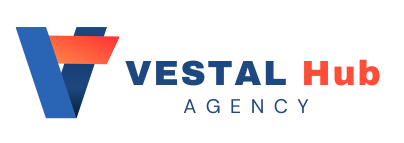In the vast landscape of the internet, getting your website noticed can be a daunting task. However, with the right approach to search engine optimization (SEO) with Hubspot, you can improve your website’s visibility and attract more organic traffic. In this beginner’s guide, we’ll walk you through the fundamentals of optimizing your website for search engines.
Understanding Search Engine Optimization (SEO)
SEO is the process of optimizing your website to improve its visibility in search engine results pages (SERPs). By optimizing various aspects of your site, you can increase your chances of ranking higher for relevant search queries, driving more traffic to your website.
Key Components of SEO
- Keyword Research: Identify the terms and phrases your target audience is using to search for information related to your products or services. Use keyword research tools like Google Keyword Planner or SEMrush to find relevant keywords with high search volume and low competition.
- On-Page Optimization: Optimize your website’s content, meta tags, headings, and URLs to include your target keywords naturally. Ensure your content is well-structured, informative, and valuable to users.
- Technical SEO: Improve your website’s technical aspects, such as site speed, mobile-friendliness, crawlability, and indexing. Address issues like broken links, duplicate content, and XML sitemaps to ensure search engines can crawl and index your site effectively.
- Content Creation: Regularly publish high-quality, relevant content that addresses the needs and interests of your target audience. Incorporate your target keywords naturally and aim to provide valuable insights, solutions, or entertainment to your readers.
- Link Building: Earn backlinks from authoritative and relevant websites to improve your site’s authority and credibility in the eyes of search engines. Focus on acquiring quality backlinks from reputable sources through guest blogging, influencer outreach, and content promotion.
Tools and Resources for SEO
- Google Search Console: Monitor your website’s performance in Google search results, identify indexing issues, and track keyword rankings.
- Google Analytics: Gain insights into your website traffic, user behavior, and conversion metrics to measure the effectiveness of your SEO efforts.
- Yoast SEO (for WordPress): A popular SEO plugin that helps optimize your WordPress site for search engines by providing on-page optimization recommendations and content analysis.
- Moz and SEMrush: Comprehensive SEO platforms that offer keyword research, site audit, backlink analysis, and rank tracking tools to help you improve your website’s search visibility.
Conclusion
Optimizing your website for search engines is an ongoing process that requires dedication, patience, and a willingness to adapt to changing algorithms and best practices. By following the strategies outlined in this beginner’s guide and leveraging the right tools and resources, you can improve your website’s search visibility and attract more organic traffic over time.
Ready to take your website to the next level? Start optimizing for search today and watch your online presence grow!

